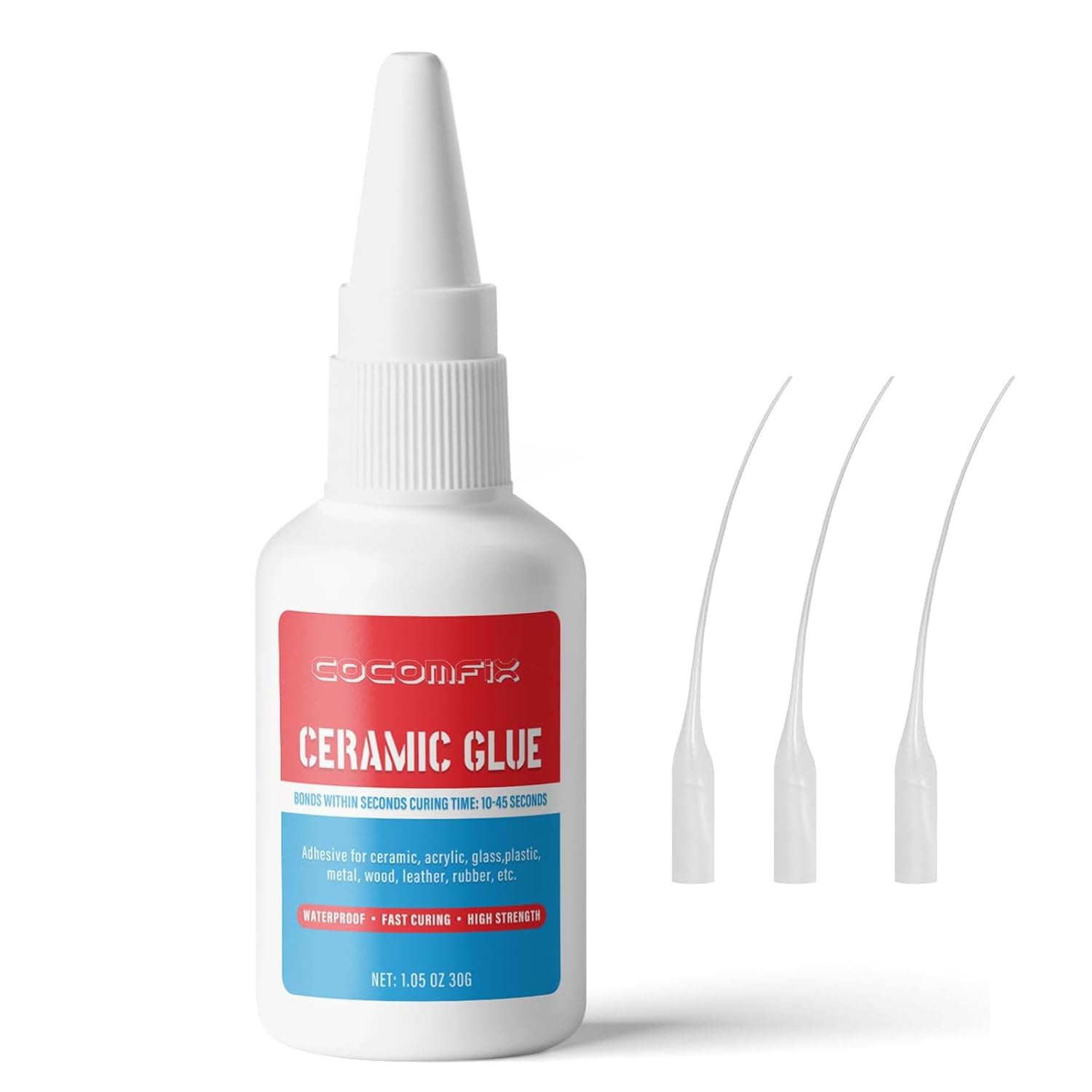For food-safe glue for ceramics, look for non-toxic, FDA-approved options like epoxy or cyanoacrylate. These adhesives are specifically designed to be safe for use with items that come into contact with food.
Ensuring that the glue you choose is food-safe will help maintain the integrity of your ceramic items while keeping them safe for everyday use. When repairing ceramic dishes or creating ceramic projects that will be used for serving food, the safety of the adhesive used is paramount.
By selecting a food-safe glue, you can enjoy your ceramic pieces without worrying about any harmful chemicals leaching into your food. Let’s explore some options for food-safe adhesives for ceramics to help you make the best choice for your projects.

Introduction To Food Safe Ceramic Glue
Choosing the right adhesive for food-safe ceramic glue is of utmost importance. When it comes to food contact, safety considerations are crucial. It is essential to select a glue that is specifically formulated for use with ceramics and is labeled as food-safe. Such glues are designed to withstand the high temperatures involved in cooking and are free from toxic chemicals that could leach into food.
When looking for a food-safe ceramic glue, it is recommended to read the product labels carefully. Look for certifications such as FDA approval or NSF certification, which ensure that the adhesive meets stringent safety standards. Additionally, consider the bonding strength and drying time of the glue to ensure it meets your specific needs.
By choosing a food-safe ceramic glue, you can have peace of mind knowing that your ceramics will remain securely bonded while being safe for food contact. Remember to always follow the manufacturer’s instructions for application and allow sufficient curing time before using the ceramics for food-related purposes.
Types Of Food Safe Glues For Ceramics
When choosing a food safe glue for ceramics, consider epoxy resins, silicone adhesives, and polyurethane-based glues. Epoxy resins are strong and durable, suitable for bonding ceramics. Silicone adhesives offer flexibility and resistance to high temperatures, making them ideal for food-safe ceramic applications. Polyurethane-based glues provide waterproof and dishwasher-safe bonds, ensuring the safety of your ceramic items. Each type of glue has its own unique properties, so it’s important to select the one that best meets your specific needs for food-safe ceramic repairs and projects.
Criteria For Selecting Food Safe Glue
When selecting a food safe glue for ceramics, it is crucial to consider temperature resistance. The glue should be able to withstand high temperatures without compromising its adhesive properties.
Chemical resistance is another important factor to consider. The glue should be resistant to various chemicals and should not react with food or beverages, ensuring that it remains safe for use with ceramics.
Additionally, the curing time of the glue is essential. It should cure within a reasonable time frame to ensure that the bonded ceramics can be used promptly without compromising food safety.
Certifications And Standards
When it comes to food safe glue for ceramics, it is important to consider certifications and standards. One crucial certification to look for is FDA compliance. This ensures that the glue meets the safety regulations set by the U.S. Food and Drug Administration. Additionally, EU regulations for food contact materials are also important to consider, especially if you are selling or using the ceramics in European countries. These regulations ensure that the glue used is safe for food contact and does not pose any health risks. It is crucial to choose a glue that has obtained these certifications and complies with the necessary standards to ensure the safety of your ceramics and the food items they come into contact with.
Application Techniques For Ceramic Glue
When using food safe glue for ceramics, it is crucial to properly prepare the surface. Ensure that the areas to be glued are clean and free from any dust or debris. Apply the adhesive to both surfaces, pressing them firmly together. Allow the glue to undergo the curing process as per the manufacturer’s instructions. This will ensure a strong and durable bond for your ceramic items.
Maintenance And Care For Repaired Ceramics
Proper maintenance of repaired ceramics is crucial for long-term durability. Use mild soap for cleaning and avoid harsh chemicals. Handle with care to prevent damage. Consider replacing ceramics if repeated repairs are needed.
Diy Vs. Professional Repair
Food safe glue for ceramics is crucial for repairs to maintain safety standards. DIY repairs can be cost-effective and fun for minor damages. However, for complex or valuable items, it’s wise to call a professional. Professionals have the expertise and tools to ensure a secure and long-lasting repair. When deciding between DIY and professional repair, consider the extent of the damage and the value of the item. Prioritize safety and quality to preserve the integrity of your ceramics.
Common Questions Answered
Looking for a food-safe glue for ceramics? Find answers to common questions here. Discover the best options and learn how to safely repair your ceramic items.
| Can You Microwave Repaired Ceramics? | How to Test for Food Safety? | Shelf Life of Ceramic Glue |
| It is safe to microwave ceramics repaired with food-safe glue. | Ensure food safety by checking for non-toxic labels on the glue. | Ceramic glue has a long shelf life if stored properly. |
Alternatives To Gluing Ceramics
Looking for food-safe alternatives to gluing ceramics? Explore options like ceramic epoxy, food-grade silicone, or even ceramic repair kits that offer non-toxic, durable bonding solutions for your ceramic projects. Keep your ceramics safe and secure without compromising on food safety.
| When gluing ceramics, opt for food safe adhesive products. |
| Research eco-friendly glues made for kitchenware repairs. |
| Consider silicone-based sealants for dishwasher-safe ceramic fixes. |


Frequently Asked Questions
What Is Food Safe Glue For Ceramics?
Food safe glue for ceramics is a type of adhesive that is specifically designed to be used on ceramic dishes, cups, and other kitchenware. This type of glue is safe for use with food because it is non-toxic, does not contain any harmful chemicals, and is heat resistant.
Can I Use Regular Glue On Ceramic?
No, regular glue is not recommended for use on ceramic. Most types of glue are not food safe and can contain chemicals that are harmful if ingested. Additionally, regular glue may not be strong enough to bond ceramic pieces together and may not hold up well under heat or moisture.
What Are The Best Food Safe Glues For Ceramics?
Some of the best food safe glues for ceramics include epoxy, cyanoacrylate (super glue), and PVA (polyvinyl acetate) glue. These types of glues are non-toxic, strong, and heat resistant, making them ideal for use on ceramic dishes and kitchenware.
Can Food Safe Glue Be Used On Ceramic Mugs?
Yes, food safe glue can be used on ceramic mugs and other kitchenware. When using food safe glue on ceramics, it is important to follow the manufacturer’s instructions carefully and allow the glue to fully cure before using the item.
Conclusion
When it comes to finding a food safe glue for ceramics, it is crucial to choose the right one that meets your specific needs. Make sure to carefully read the label and product description to ensure that it is food safe and non-toxic.
Additionally, consider the strength and drying time of the glue to ensure a secure and lasting bond. By following these tips, you can confidently repair or create food-safe ceramic items with ease.

